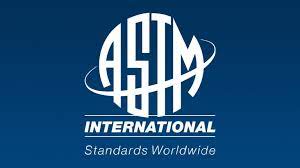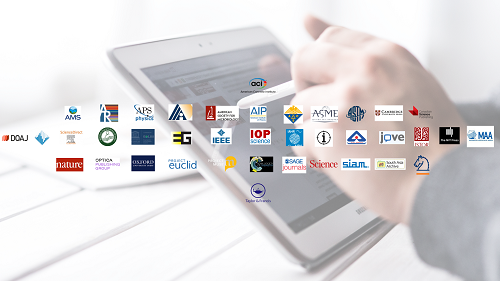Following are the standard bodies which covers many professional societies, and their main functions is to develop the standards. The standards published by these bodies in print and/or digital formats are available for purchase from respective standards bodies listed.
AASHTO sets standards that are used in highway development. It works as a liaison between state departments of transportation and the federal government.
ACI publishes more than 400 standards that apply to the manufacture, use and maintenance of concrete in a variety of applications. These standards also determine methods for testing, inspection and building code requirements.
Library subscribe the following:
The ACI Collection of Concrete Codes, Specifications, and Practices (Formerly Manual of Concrete Practice)
ANSI writes standards guidelines used by all industries in the US to provide consensus procedures required to receive ANSI accreditation. Through ANSI, U.S. standards are often submitted to ISO and IEC to be used in whole or in part as international standards.
ANS develops standards for a variety of nuclear related topics, such as reactor safety, waste management, materials handling and transport, accident response, and software for the nuclear industry. Currently there are over 70 active ANS standards.
API standards are developed under API’s American National Standards Institute accredited process, ensuring that the API standards are recognized not only for their technical rigor but also their third-party accreditation which facilitates acceptance by state, federal, and increasingly international regulators.
ASCE Codes and Standards contribute to the efficiency and consistency in the design and construction of public works and facilities. These standards direct the design and maintenance of public works such as roads, bridges, water, and energy systems as well as public facilities like ports, railways and airports. It is one of the oldest engineering societies in the United States.
ASHRAE has published 4000+ standards for refrigeration and heating, ventilation, and air conditioning (HVAC) systems. The three types of standards it publishes are methods of measurement (or test), standard design, and standard practice.
ASME develops standards for a wide variety of areas, including nuclear plants, pressure technology, performance testing, elevators, escalators, pipelines and piping, pumps, valves, fittings, gaskets, and hand tools. ASME is well known for its Boiler & Pressure Vessel Code (BPVC) body of standards which is widely used worldwide by manufacturers, technicians and inspectors.
AWWA has published more than 140 standards for equipment and materials used in the treatment and distribution of drinking water. This collection also contains Standard Methods for the Examination of Water and Wastewater with current lab methods for water and wastewater analysis.
ASTM International (formerly the American Society for Testing and Materials)
ASTM International standards are applied globally to products as varied as petroleum and consumer goods. These standards and supporting materials are critical to the design and manufacture of global products and services. In addition, multiple sets of safety standards determine the processes and tools for maintaining a safe and sustainable environment.
Established in 1901, BSI was the world’s first national standards body. Full texts of current and draft British Standards, BSI-adopted European and international standards, handbooks, Codes of Practice, Guidelines, and glossaries.
Guobiao standards are the Chinese national standards issued by the Standardization Administration of China (SAC), the Chinese National Committee of the ISO and IEC. It has published more than 180,000 China National GB Standards, Industry standards & Regulations database for free search.
CEN, the European Committee for Standardization, is an association that brings together the National Standardization Bodies of 34 European countries. CEN is one of three European Standardization Organizations (together with CENELEC and ETSI) that have been officially recognized by the European Union and by the European Free Trade Association (EFTA).
IEEE develops standards through the IEEE Standards Association (IEEE-SA). With an active portfolio of nearly 1,300 standards and projects under development, IEEE is a leading developer of industry standards in a broad range of technologies that drive the functionality, capabilities, and interoperability of products and services, transforming how people live, work, and communicate.
IEC prepares and publishes international standards for electrical, electronic, and related technologies. IEC works with ISO and the International Telecommunication Union (ITU) under the banner World Standards Organization (WSC) to ensure that standards work together globally.
ISO is an independent, non-governmental, international organization with a membership of 165 national standards bodies that develops and publishes consensus-based international standards. ISO publishes standards in almost every industry for materials, products, processes, and services.
ITU is the United Nations agency for information and communication technologies – ICTs. It allocates global radio spectrum and satellite orbits and develops technical standards that ensure networks and technologies seamlessly interconnect.
The National Board of Boiler and Pressure Vessel Inspectors (NBBI) created the National Board Inspection Code (NBIC), which authors standards for the operation, maintenance and repair of boilers and pressure vessels
NFPA has published more than 300 consensus codes and standards intended to minimize the possibility and effects of fire and other risks. These documents including the National Electric Code®, Life Safety Code®, Fire Code and National Fuel Gas Code. Guidelines are accredited by the American National Standards Institute (ANSI).
RTCA produces minimum performance standards and guidance materials that are requested by the FAA and become a partial basis of FAA regulations for aviation systems and equipage. They are produced by committees of volunteers representing the interested and relevant stakeholders.
SAE develops standards for mobility engineering around the world. Standards are developed for aerospace, aerospace materials, ground vehicles, and the United States Council for Automotive Research (USCAR).
Standards Australia is the nation's leading non-governmental, not-for-profit standards organization facilitating the development of new and existing Australian Standards across a variety of sectors, as well as the adoption of international Standards.
SCC publishes voluntary standards for Canada and oversees the National Standards System (NSS), which is a network of organizations and individuals involved in voluntary standards development, promotion, and implementation in Canada.
TAPPI is the leading association for the worldwide pulp, paper, packaging, and converting industries and publisher of Paper360º and TAPPI JOURNAL. It offers standards and technical information papers to measure, evaluate and describe paper and pulp products. TAPPI standards also apply to raw materials used in manufacturing and scientific investigations.
Underwriters Laboratories® (UL) has developed more than 1,100 safety standards essential to helping engineers, marketers, managers, and product developers ensure public safety and confidence. UL evaluates 19,000+ types of products, components, materials, and systems annually with 20 billion UL Marks appearing on 66,000 manufacturers' products each year.




